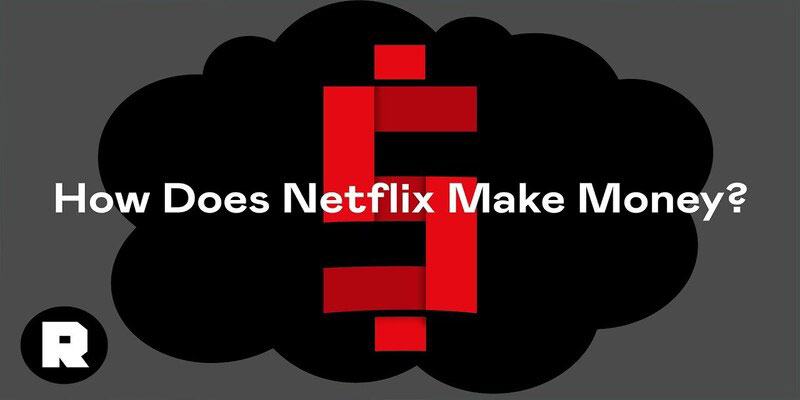
With over 214 million customers in more than 190 countries, Netflix has established itself as one of the most widely used entertainment platforms worldwide. The company's extensive library of high-quality, on-demand material has changed how consumers watch movies and television. Here we'll examine Netflix's business model and how the company generates income. How Netflix Makes Money Netflix relies heavily on subscription fees paid by its subscribers, and the corporation has multiple pricing and feature tiers available. Netflix's rise has been fueled in no little part by the company's efforts to expand internationally, where it has made substantial investments in creating original content in local languages and cultures. Netflix's original content approach has been crucial to the company's success since it has helped it stand out from the competition, win over, and keep members with its high-quality, original programming.
Subscription Fees
User membership fees make up the bulk of Netflix's income. The company provides several service tiers, from the most basic to the most expensive. Rates for the Standard plan is $13.99 per month, the Premium plan is $17.99 per month, and the Basic plan costs $8.99 per month, all as of September 2021. Netflix's pricing strategy is value-based, with the company constantly striving to offer better value to customers than its rivals. The company has set itself apart from its competitors by investing substantially in creating original content and acquiring license rights to popular TV episodes and movies. Netflix's massive collection of high-quality material has been a key to the company's success in attracting and keeping users.
International Expansion

Netflix's foreign expansion significantly contributes to the company's financial success. As of September 2021, the company has expanded to more than 190 different nations thanks to its tremendous growth over the past few years. As of Q2 2021, overseas revenue was 57% of Netflix's overall revenue, and this percentage was expanding quickly. Netflix's content strategy has been the driving force behind its international expansion, with the company actively working to produce and buy material that will appeal to viewers worldwide. The company has put a lot of resources into creating original material in regional languages and cultural contexts, allowing it to break into previously untapped markets. Growing demand for streaming services worldwide has aided Netflix's international expansion as more and more individuals abandon paying TV for subscription streaming services like Netflix.
Original Content
Netflix's success and growth may be directly attributed to its focus on producing and distributing its original content. The corporation puts a lot of money into making its shows and movies stand out and keep its members. Netflix has invested heavily in original content, with over a thousand TV programs and movies as of September 2021, and it has no intentions to stop there. There are many benefits to Netflix's approach to creating its content. First, it allows the corporation to control its licensing fees and dependence on other studios' content. Second, it enables Netflix to differentiate itself from rival services by providing material unavailable elsewhere. Last but not least, it aids the business in attracting and retaining members by giving those people access to unique, high-quality information they can't get anywhere else.
Licensing Agreements

Netflix's success may be attributed mainly to the company's commitment to producing original content; nonetheless, the streaming service still relies significantly on licensing deals to meet the content needs of its users. Netflix has licensing deals with Disney, Warner Bros., NBC Universal, and Paramount, among other big studios and content producers. Netflix can attract and keep members thanks mainly to its extensive catalog of current and classic TV episodes and movies licensed under these partnerships. The licensing deals that Netflix enters into are often relatively long-term and require hefty up-front payments. The firm negotiates these deals depending on the popularity and demand for specific material to give its members the best possible variety of TV episodes and movies.
Conclusion
Netflix has been so successful because it offers its customers access to unique and original programming that is not available anyplace else. The company has relied mainly on its subscription-based business model. It has succeeded in drawing and keeping customers by spending heavily on original content and entering into licensing arrangements with major studios and content suppliers. In addition, the company's content strategy, which seeks to produce and buy content that appeals to a global audience, has played a significant role in Netflix's success. In the future, Netflix intends to keep spending money on original programming and growing its global reach. The company aims to have over 500 million subscribers by 2030, requiring sustained investment in new content and geographic development. Competitors to Netflix include Disney+, Amazon Prime Video, as well as Hulu.



